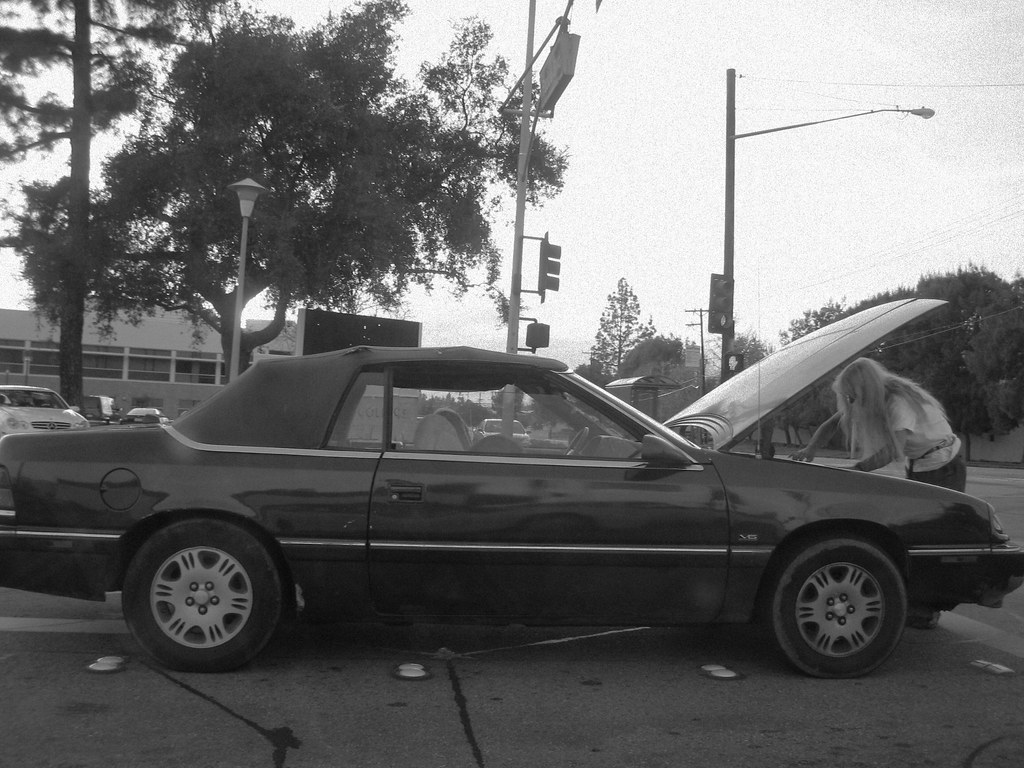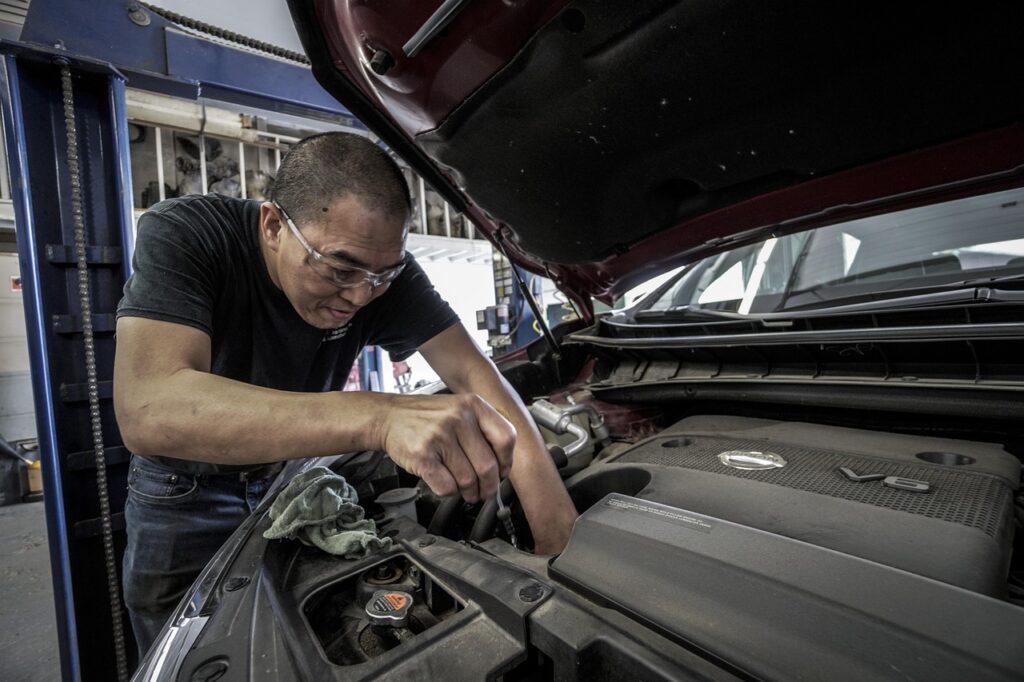
As a car owner, the hum of a smoothly running engine is a symphony, but a sudden clunk or the ominous glow of a dashboard warning light can send shivers down your spine. For many of us, our knowledge of internal combustion is limited to the basics, leaving us feeling vulnerable when a trip to the mechanic becomes necessary. We rely on their expertise, trusting them to diagnose issues accurately and propose fair solutions, often without a full understanding of the intricacies under the hood.
Unfortunately, not every garage operates with the same high level of integrity. While most mechanics are honest professionals dedicated to their craft, a regrettable minority are less trustworthy, actively seeking opportunities to “jack up your repair bill” through various rip-off schemes. These unscrupulous practices prey on our anxiety and our limited technical know-how, turning a necessary repair into a costly ordeal. It’s a frustrating reality that can erode confidence in an entire industry, making routine maintenance a source of dread rather than a simple necessity.
However, consumers are not powerless in this scenario. The Federal Trade Commission (FTC) sagely advises that “the best way to avoid auto repair rip-offs is to be prepared.” They further suggest that “Knowing how your vehicle works and how to identify common car problems is a good beginning.” Empowering yourself with knowledge and understanding the tell-tale signs of a dishonest mechanic is your best defense. We’re here to equip you with the insights you need to navigate the auto repair world with confidence, helping you identify and steer clear of common ploys that could leave your wallet feeling lighter and your trust feeling shattered.

1. **Exploiting “Check Engine” Light Anxiety**The illuminated “check engine” light on your dashboard is undoubtedly one of the most anxiety-inducing signals a car can display. It’s a vague warning that immediately conjures images of costly repairs, sudden breakdowns, or being stranded on a busy highway. The ambiguity of this light—signaling anything from a loose gas cap to a significant engine misfire, as Consumer Reports points out—creates a fertile ground for less scrupulous mechanics to cultivate fear and push unnecessary services.
Dishonest mechanics understand that this fear-driven reaction often leads customers to imagine “the worst” possible scenario. They capitalize on this emotional vulnerability, sometimes exaggerating the potential severity of the issue or implying catastrophic failure if immediate, expensive work isn’t performed. This tactic is designed to rush you into a decision before you have a chance to seek a second opinion or fully understand the problem. It’s a classic example of leveraging consumer ignorance for profit, turning a minor fault into a major financial burden.
The good news is that you don’t have to succumb to these scare tactics. Before you even schedule an appointment with a mechanic, you can take a crucial preliminary step. Many local auto parts stores, such as Auto Zone, offer a free service where they “hook up a diagnostic machine that can detect engine misfires or other issues.” This simple action can provide you with a preliminary idea of what’s going on, giving you valuable information to discuss with any mechanic and helping you discern legitimate concerns from manufactured fears. Arming yourself with this initial data is your first line of defense against being overcharged and ensures you enter discussions from a position of strength.

2. **Dismissing Pre-Diagnostic Checks**Building upon the previous point, a significant red flag often emerges when a mechanic dismisses or belittles any preliminary diagnostic information you’ve gathered yourself. If you’ve taken the initiative to visit an auto parts store for a free check-engine light scan and present these findings, an honest mechanic will typically welcome the information as a starting point. They will often confirm the codes, perform their own more in-depth diagnostics, and then clearly explain the implications of what was found, fostering a collaborative approach to repair.
However, a dishonest mechanic might react differently. They may brush off your diagnostic printout, suggesting it’s unreliable, incomplete, or even implying that your attempt to be informed is an inconvenience. This dismissal isn’t just rude; it’s a strategic move to regain control of the narrative and prevent you from having an informed conversation about your vehicle’s needs. By discrediting your initial findings, they seek to re-establish a knowledge gap, making it easier for them to push their own agenda without challenge or scrutiny.
Your proactive step in getting a preliminary diagnostic scan is about empowering yourself. It shifts the dynamic from blind trust to informed discussion, allowing you to ask targeted questions. If a mechanic seems unwilling to engage with or even acknowledge the information you’ve brought, it should immediately raise concerns about their transparency and honesty. This behavior suggests they prefer you remain in the dark, which is rarely in your best interest as a consumer. Always prioritize mechanics who value and respect your efforts to be an educated customer, as this indicates a genuine commitment to fair service.

3. **Promoting “Too Cheap” Oil Changes as a Lure**The allure of a deeply discounted oil change can be incredibly strong, especially when presented with a coupon promising an unbelievably low price. It’s a common scenario: you receive a flyer in the mail from the “tire place down the street” offering a budget-friendly service. This marketing strategy often successfully draws customers in, fulfilling the immediate need for routine maintenance at what appears to be a bargain, making it seem like a smart financial move.
However, it’s crucial to understand the economic reality behind such promotions. As the context points out, “the business offering the coupon probably won’t make a profit from your cheap oil change.” These services are often loss leaders, designed not to generate direct revenue, but solely to get you through the door. They serve as a hook, an invitation to a broader opportunity for the mechanic shop to recoup its costs and, potentially, much more through additional sales.
This is where the risk begins to escalate. Once your vehicle is in their bay for a basic, low-margin service, the stage is set for a less-than-honest technician to engage in other tactics. The initial cheap price becomes a gateway for them to “try to sell services or repairs you don’t need to come out ahead.” What started as an apparent saving can quickly spiral into a significantly larger bill, masking the true intent behind the enticing offer. Consumers should always be wary of deals that seem too good to be true, especially when they come from establishments without a pre-existing trusted relationship.

4. **Pressuring for Unnecessary Upsells During Routine Service**Directly following the lure of cheap basic services, the practice of pressuring customers into unnecessary upsells is a hallmark of dishonest mechanic shops. Once your car is on the lift for that bargain oil change, technicians are often incentivized to scrutinize every component, frequently finding “issues” that may be minor, non-existent, or not critical for immediate repair. This pressure comes in the form of urgent recommendations for additional, costly services that weren’t part of your initial visit, often presented as vital.
These “slippery oil change upsells,” as described in our context, frequently target components like air filters, cabin filters, various fluid flushes, or even brake services that might still have plenty of life left. The tactic often involves showing you a “dirty” component, which might simply be normal wear and tear, and exaggerating its impact on your vehicle’s performance or safety. The goal is to make you feel that foregoing these additional services is irresponsible, even dangerous, regardless of their actual necessity, pushing you into a hurried decision.
To counter this, the advice from the context is clear and invaluable: “Instead of searching out the cheapest oil change in town, find and keep a mechanic you trust and have him change your oil, along with other regular vehicle maintenance.” A trusted mechanic will prioritize your vehicle’s actual needs, explain any recommendations clearly, and allow you to make informed decisions without undue pressure. Building this relationship is a powerful shield against opportunistic upsells, ensuring your car gets the right care at the right time, and your wallet doesn’t suffer needlessly from fabricated urgency.

5. **Failing to Provide Written Estimates**One of the most fundamental consumer protections in the automotive repair industry is the right to a written estimate. This isn’t just a courtesy; it’s a critical document that outlines the anticipated costs and scope of work before any repairs begin. When you request a written estimate and a mechanic or dealership resists providing one, or only offers a verbal quote, it should immediately trigger a serious warning signal, indicating a potential lack of transparency.
The absence of a written estimate opens the door to numerous potential abuses. Without a clear, documented agreement on price and services, a dishonest mechanic can easily inflate the final bill, add charges for work not explicitly approved, or claim that higher costs were always part of the discussion. Verbal agreements are notoriously difficult to enforce and often lead to disputes, leaving the consumer at a significant disadvantage when trying to challenge an unexpected or inflated charge.
The Federal Trade Commission (FTC) strongly advocates for transparency in auto repairs, implicitly emphasizing that a written estimate is a standard and expected practice. Insisting on this document before any work commences is not being difficult; it’s being a smart, prepared consumer. It provides a legal and ethical baseline for your transaction, protecting you from arbitrary pricing adjustments and ensuring that you and the mechanic are on the same page regarding the scope and cost of the repair. Never allow work to begin without a clear, written understanding of the financial commitment, as this is your fundamental right.
Read more about: Declassified Echoes: Unveiling the Hidden Truths of the Cuban Missile Crisis, From Intelligence Briefs to Khrushchev’s Retreat

6. **Offering Non-Itemized Estimates**While getting a written estimate is a crucial first step, its utility is severely diminished if the estimate itself is not properly itemized. A non-itemized estimate is little more than a single, ambiguous total, leaving you completely in the dark about how that final figure was reached. It essentially bundles all expenses—parts, labor, and any miscellaneous fees—into one lump sum, making it impossible for you to understand the individual breakdown of costs. This pervasive lack of detail is a prime indicator of a mechanic’s reluctance to be fully transparent.
When an estimate “isn’t itemized,” it becomes a black box. You have no way of knowing if the parts are excessively marked up, if the labor hours are padded beyond what is reasonable, or if there are hidden charges being slipped in without your knowledge. This opacity directly contradicts the consumer’s need for clarity and the expectation of fair pricing. It prevents you from conducting any due diligence, such as comparing part prices online or questioning the quoted labor time for specific tasks, effectively stripping you of your power as a consumer.
The FTC’s guidance is explicit on this matter: “An itemized estimate should identify the condition to be repaired, parts needed and anticipated labor repairs.” If your written estimate falls short of these clear standards, it is absolutely within your right, and indeed highly advisable, to “ask for a breakdown of parts and labor costs so you can see what you’re paying for.” Don’t settle for vague totals; demand the detail that empowers you to make an informed decision and protects you from potential overcharging. This transparency is key to ensuring you’re only paying for what is truly necessary and fairly priced, safeguarding your budget from exploitation.
Navigating the complexities of auto repair requires a vigilant eye, especially when confronting the deeper financial manipulation tactics employed by less scrupulous shops. Beyond the initial ploys and estimate issues, consumers must be aware of practices designed to exploit their trust and technical unfamiliarity, ultimately leading to significant overspending and prolonged vehicle issues. Understanding these advanced indicators of dishonesty is crucial for fostering transparent relationships and avoiding long-term exploitation.

7. **Charging for Work Not Performed**One of the most brazen forms of financial manipulation involves a mechanic charging for services or parts that were never actually provided or installed. This scam is particularly insidious because it’s often difficult for an average consumer to verify if every line item on their bill corresponds to actual work completed under the hood. You might see charges for a specific part replacement, but without concrete evidence, how can you be sure it was truly replaced?
This practice is a direct violation of consumer trust and a clear attempt to “jack up your repair bill” through outright fraud. It underscores the importance of a clear and itemized estimate, but even with that, some dishonest mechanics will simply perform less work than agreed upon while still billing for the full scope. Such actions lead to consumers paying for phantom repairs, which not only drains their finances but also leaves underlying vehicle problems unaddressed, potentially leading to future, more severe breakdowns.
To combat this, being present during parts of the repair process, if permitted, can be beneficial, though often impractical. A more realistic defense is to demand that all replaced parts be returned to you, a point we will elaborate on shortly. Additionally, comparing your repair bill with a detailed list of diagnostic codes and recommended services from a trusted third party can help identify discrepancies. Documentation, photographs, and detailed questions before and after the repair are invaluable tools against this deceptive tactic, ensuring you only pay for legitimate services.
Read more about: Unpacking the 2025 Tesla Model S Maintenance Costs: A Comprehensive Consumer Guide

8. **Refusing to Show Replaced Parts**Following closely on the heels of charging for unperformed work is the mechanic’s reluctance or outright refusal to return old, replaced parts upon request. This refusal is a significant red flag, directly indicating potential deceit regarding the actual work performed or the necessity of the replacement. If a mechanic genuinely replaced a worn or faulty component, they should have no qualms about demonstrating the old part, as it serves as tangible proof of their service.
The primary reason a dishonest mechanic might withhold old parts is to conceal the fact that the part was never replaced, or that the original part was still in perfectly good working condition. By removing this crucial piece of evidence, they eliminate your ability to verify the necessity of the repair and the integrity of their work. It renders your detailed, itemized estimate meaningless if you cannot confirm the components listed were indeed swapped out.
As a consumer, you have every right to request and inspect any parts that have been removed from your vehicle. This right is often backed by state consumer protection laws. If a mechanic claims they “threw it away” or “it’s shop policy not to return parts,” it should immediately heighten your suspicion. Insist on seeing the old parts before payment. If they refuse, consider it a strong indicator that their practices are not transparent and your bill might reflect charges for parts or services you did not receive.
Read more about: Seriously, What Happened? 12 Once-Iconic Features Mechanics Just Don’t Fix Anymore.
9. **Exaggerating Severity or Urgency of Minor Issues**A common and effective tactic for increasing a repair bill is to exaggerate the severity or urgency of a minor issue. This typically occurs after your vehicle is already in the shop for an unrelated, often minor, service. The mechanic might present a component that shows normal wear and tear, such as a slightly worn brake pad or a tire with moderate tread, and then dramatically describe it as being on the verge of catastrophic failure, instilling a sense of panic.
This psychological manipulation aims to override your rational decision-making by playing on your safety concerns. You’re told that ignoring this “critical” issue will lead to immediate danger or exponentially more expensive repairs down the line, pressuring you into immediate, often unbudgeted, service. The objective is to push additional, often unnecessary, repairs by transforming routine observations into urgent safety hazards, thereby boosting their profit margins without genuine cause.
Empowering yourself against this tactic requires understanding that normal wear exists and not every observed component requires immediate, emergency replacement. If presented with a “critical” new issue, ask for the specific risks involved, and, most importantly, seek an independent second opinion. A reputable mechanic will explain the progression of wear and allow you to make an informed decision on timing, rather than inducing panic for an immediate upsell. Prioritize mechanics who educate, not intimidate, their customers about the true condition of their vehicles.
10. **Discouraging Second Opinions or Independent Inspections**One of the most telling signs of a dishonest mechanic, and a direct affront to consumer preparedness, is their active discouragement of customers seeking a second opinion or an independent pre-purchase/pre-repair inspection. When a mechanic insists that a quote is “only good today” or suggests that taking your vehicle elsewhere would be “a waste of time,” they are often attempting to prevent any external scrutiny of their diagnosis or pricing.
This resistance to external verification is a strong indicator that the proposed repairs or costs may not withstand independent evaluation. Honest shops understand that complex repairs are significant investments and respect a customer’s right to explore all options. They rely on transparent explanations and fair pricing, not on blocking access to comparative information. A mechanic who pressures you to commit on the spot, without allowing for due diligence, is likely operating with a hidden agenda.
The Federal Trade Commission (FTC) implicitly supports the practice of seeking multiple quotes to ensure fair pricing and accurate diagnoses, as outlined in its consumer advice on auto repairs. Always remember that your vehicle is a significant asset, and you have every right to shop around for service. If a mechanic becomes defensive, dismissive, or overtly hostile when you mention getting a second opinion, it should serve as a flashing warning sign, prompting you to take your business elsewhere for a more trustworthy assessment.
11. **Using Overly Technical Jargon to Confuse**A key strategy employed by dishonest mechanics to “discourage consumer preparedness” and maintain control over the repair narrative is the deliberate use of overly technical jargon. When describing a problem or proposed solution, these mechanics might employ complex engineering terms, acronyms, and obscure references without offering clear, layman’s explanations. This creates a barrier of understanding, making it difficult for consumers to ask pertinent questions or evaluate the necessity of the work.
This tactic aims to overwhelm customers, making them feel ignorant and more likely to defer entirely to the mechanic’s supposed superior knowledge. By baffling you with science, they prevent you from engaging critically with the diagnosis or the estimated costs. It’s a way to obscure potentially inflated labor times or questionable part choices behind a smokescreen of expertise, ensuring that you accept their recommendations without sufficient scrutiny.
While some technical terms are unavoidable, a truly honest and consumer-focused mechanic will always strive to translate complex information into understandable language. They will use diagrams, demonstrate the issue if possible, and patiently answer your questions until you feel comfortable with the proposed repairs. If you find yourself consistently confused and feel your questions are being met with more jargon rather than clarity, it’s a strong indication that the shop prioritizes its own interests over your informed consent. Always insist on explanations you can understand.
Read more about: Owners Consider This: 10 Warning Signs of Auto Repair Shops You Should Seriously Think Twice About Trusting
12. **Lack of Clear Warranty or Unspecified Terms**The reliability of a repair, and the integrity of the shop performing it, is often reflected in the warranty offered on parts and labor. A significant red flag that speaks to the long-term auto repair exploitation potential is a mechanic shop that provides no warranty, an extremely short warranty, or vague, unspecified warranty terms. A lack of clear accountability for their work suggests a potential lack of confidence in their repairs or a deliberate attempt to avoid responsibility if issues recur.
A reputable mechanic will stand behind their work with a clear, written warranty that specifies the duration of coverage (e.g., 12 months or 12,000 miles) and precisely what it covers (parts, labor, or both). This provides consumers with peace of mind and protection against premature component failure or faulty installation. Without such a guarantee, any subsequent problems could leave you footing the bill for the same repair again, becoming a cycle of “long-term auto repair exploitation.”
Always inquire about warranty specifics before authorizing any major repair. Ask for the warranty details in writing, understand its scope, and clarify any exclusions. If a shop is evasive about its warranty policy or offers terms that seem unusually restrictive, it indicates they might not be committed to long-term customer satisfaction or the quality of their repairs. Prioritizing mechanics who offer transparent and reasonable warranties is a crucial step in building a trustworthy relationship and protecting your investment.
By understanding these additional, deeper signs of dishonest practices, you equip yourself with the knowledge to identify and avoid exploitative scenarios. Your vehicle is a vital asset, and maintaining it should be a straightforward process built on trust and transparency, not on fear and confusion. Always be prepared, ask informed questions, seek clarity, and don’t hesitate to take your business to a mechanic who truly values your long-term satisfaction over short-term financial gains. This proactive approach ensures your car receives the care it needs without unnecessary costs or undue stress, making you a savvy consumer in the complex world of auto repair.







